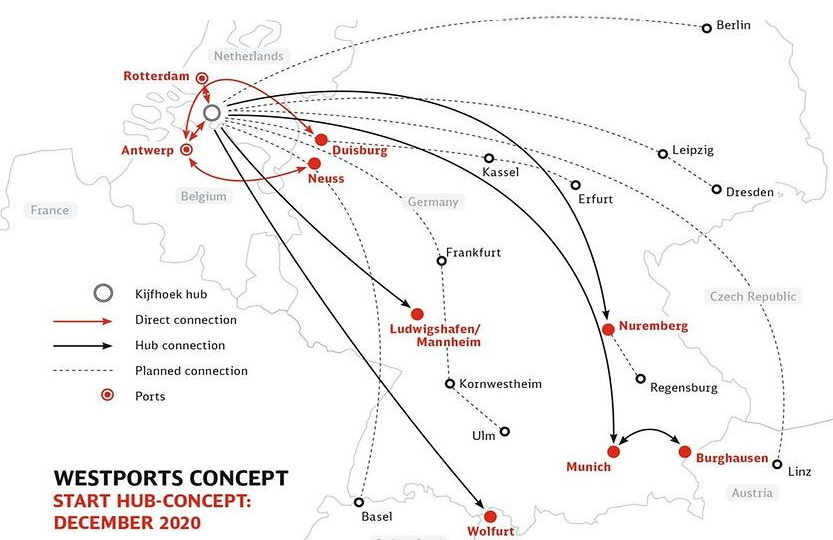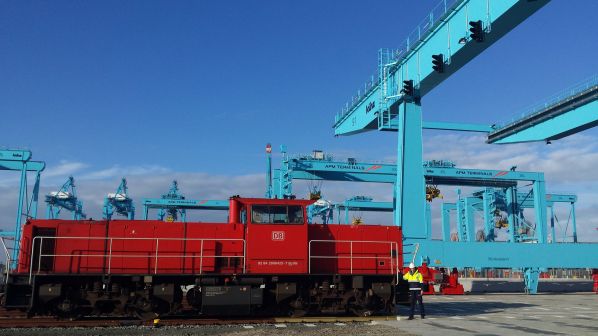Under the plans, freight will be transported from the ports to the marshalling yard in Kijfhoek, southeast of Rotterdam. From there, freight will be transported to its destination.
Initially, DB Cargo will offer daily direct services to the cities of Neuss and Duisburg in the German state of North Rhine-Westphalia, as well as indirect connections to Nuremberg, Munich and Burghausen in Bavaria, Ludwigshafen and Mannheim in Rhineland-Palatinate, and Wolfurt in Austria.
Further routes are planned which will eventually connect 11 additional cities across Germany, Switzerland and Austria.

DB Cargo says that the transported volume of freight on these connections is due to grow by around 100,000 containers per year from 2021, and expects that this increase will accompany a modal shift from road freight to rail.
At present, only around 8-11% of the 27 million containers handled by the two ports is transported to and from them by rail, compared with Europe’s third-largest port, Hamburg, where over half of all freight is transported via rail.
“We are constructing the same kind of connections for our customers in Antwerp and Rotterdam that have proven so successful for many years in other ports like Hamburg,” says Dr Sigrid Nikutta, board member for freight transport at DB and CEO of DB Cargo. “The new departures from these ports alone will take 70,000 lorries off the roads, relieving both infrastructure and the environment.”

